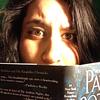Take a photo of a barcode or cover
Reviews tagging 'Colonisation'
La casa en el mar más azul. Edición especial: Edición especial con cantos tintados by TJ Klune, Carlos Abreu Fetter
26 reviews
Moderate: Colonisation
I adored that the story centred around Linus, a middle-aged, slightly tubby, self-described nobody - Linus doesn’t seem like much at the start, but as we (and Linus) eventually realize, sometimes the most magical things can come from the ordinary.
I am but paper, brittle and thin…
Graphic: Forced institutionalization, Xenophobia
Moderate: Ableism, Bullying, Child abuse, Confinement, Fatphobia, Violence, Abandonment, Colonisation
Moderate: Xenophobia
Minor: Child abuse, Colonisation
You are looking for something heartwarming about found family, celebrating bodily differences, with a gay romance between middle age men. It also shows that a mediocre person with privilege has the power and a responsibility to stand up for those harmed by institutions and racism.
You are looking for a story that completely and satisfactorily addresses the many ways that the Sixties Scoop harmed indigenous peoples, look elsewhere. It does put the responsibilities of fixing the problems onto the privileged, however they are made into a hero because their efforts are sadly rare.
With that it mind:
If you can understand that this book is unsatisfactory when it comes to properly addressing the many horrors of stealing and institutionalizing peoples because the people in power have decided that their birth families cannot care properly for their children. However it does a fairly decent job in showing the long term emotional and mental damage that this clauses in the children, but also the adults who have also had to live through this situation.
Does it solve everything and puts all the appropriate blame on the system and then fixes the problem? Nope, not even close. This is basically a love letter to the average person who does what is in their personal power to improve and protect the happiness of those who have been hurt by government and biases against the “other”.
Moderate: Bullying, Hate crime, Panic attacks/disorders, Racism, Forced institutionalization, Colonisation
Minor: Ableism, Body shaming, Bullying, Child abuse, Confinement, Emotional abuse, Hate crime, Homophobia, Mental illness, Panic attacks/disorders, Physical abuse, Racism, Forced institutionalization, Xenophobia, Religious bigotry
So I had to wait 20 holds on my library to get my hands on this book. I love the illustrator, I heard there was a queer romance and it felt like slice-of-life a fairytale. I was hyped.
The prose is solid (though it did not blow me away), the characters are sweet (this is what earns it the 2.5 alongside the gorgeous cover), but the sophistication in which the political issues were handled felt supremely lacking. At first I thought the magical children were a placeholder for all types of discrimination at once, which felt more becoming for a MG book than an adult one. I asked some friends if it ever became more nuanced but they admitted it resolved with a "first step."
The idea of magic orphanages or safehouses is well-explored territory. X-men, Umbrella Academy (which is used as a comp on the cover), HBO's The Nevers. In each of these the magical childrens' inception is spontaneous. At first I thought this book followed suit and it would be a metaphor for disability or homophobia.
The House on the Cerulean Sea does itself a disservice by racializing the childrens' magic, tying them to magical races that the text casually admits have been largely genocided and forced to assimilate to the human world. Another friend of mine tipped me off that the author admitted to being directly inspired by the history of Residential schools, and knowing that made it very difficult to keep reading as bodies keep being found in the news, though I tried another 60 pages.
While I believe regardless of identity one should be able to explore social issues, historic tragedies, and their meaning, the tone felt eerily saccharine given the inspiration and the allegory of the magical children both felt too close to the Residential schools and not directly connected enough. The tonal dissonance may be triggering for some, though I don't mean to shame anyone who loves this book.
Moderate: Child abuse, Racism, Xenophobia, Colonisation
Additionally, I know TJ Klune claims that his inspo came from real effects of the genocide of Indigenous people that are still being felt by their communities to this day, but it absolutely reads like someone who has very little understanding of what being marginalized is like. I can absolutely appreciate his message in "kindness", but it's extremely naive and misguided.
Residental schools are not a feel-good fantasy story. The Sixties Scoop isn't a fun scenario to rethink. If a random author revealed to me that they decided to write a fictionalized version of my grandfather's murder but make it *fun* and heartwarming, I'd be pissed. Now add in hundreds of years of systemic oppression. Colonizers have always told their version of the story. So for another white guy to write his version of the story, once again, it's like...why?
I should add I didn't know about the residential school connection until someone mentioned it to me halfway through me reading this book, at which point the tone and context really changed for me. It also added an element of predictability with Linus.
Graphic: Colonisation
Moderate: Child abuse, Abandonment
Minor: Fatphobia, Genocide, Hate crime, Forced institutionalization




